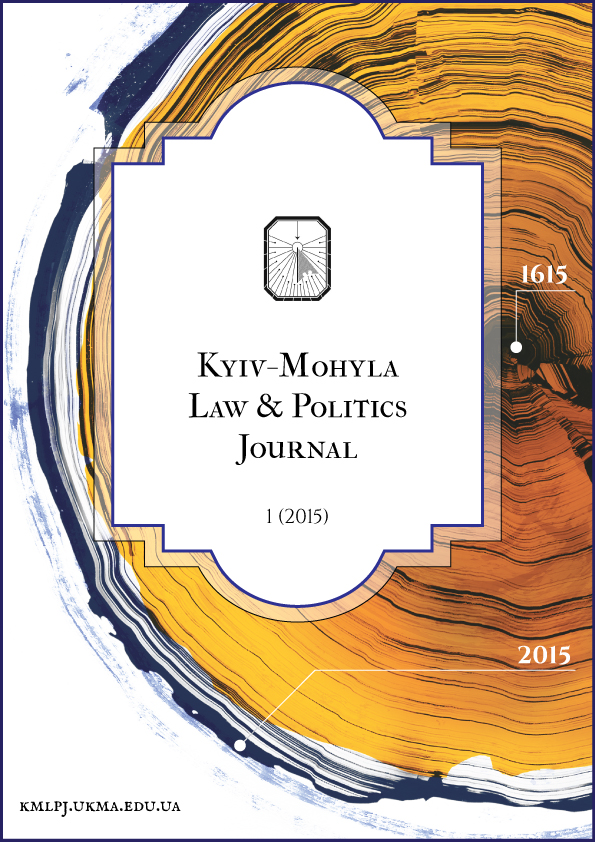Collective and Personal Representations of the Crimean Tatars in the Ukrainian Media Discourse: Ideological Implications and Power Relations
DOI:
https://doi.org/10.18523/kmlpj52661.2015-1.135-157Keywords:
media discourse, power relations, social exclusion, collective identity, interethnic relationsAbstract
This study analyzes the Ukrainian national and Crimean media’s collective and individual representations of the Crimean Tatar people during 2010–2012. It demonstrates that this media’s discourse was a sensitive milieu that reflected the unequal power relations between Crimea’s ethnic groups — the Crimean Tatar minority and the Slavic majority — and informed the way individuals constructed their identities and social roles within Crimean society. The discursive mechanisms of the media’s representations of the Crimean Tatars often included indirect and subtle forms of social exclusion. They also used references to common sense and ethnic markers to juxtapose the positive “Self”-image and the negative image of the “Other.” To portray the Crimean Tatars as a group that potentially threatens the social order, the media built a discourse of “the unsatisfied” around the group and its individual representatives.References
- Blommaert, Jan. Discourse. Cambridge: Cambridge University Press, 2005.
- Fairclough, Norman. Language and Power. Edinburgh: Longman, 1989.
- Fairclough, Norman. Media Discourse. London: Hodder Arnold, 1995.
- Johnstone, Barbara. Discourse Analysis. London: Blackwell Publishers, 2008.
- Howarth, David. Discourse. Philadelphia: Open University Press, 2000.
- Korostelina, Karina. Social Identity and Conflict: Structures, Dynamics and Implications. New York: Palgrave MacMillan, 2007.
- Krzyzanowski, M., and R. Wodak. The Politics of Exclusion. New Brunswick and London: Transaction Publishers, 2009.
- Kulyk, Volodymyr. Dyskurs ukraiinskykh medii: Identychnosti, ideolohiji, vladni stosunky [The Ukrainian Media Discourse: Identities, Ideologies, Power Relations]. Kyiv: Krytyka, 2010.
- MacDonald, Myra. Exploring Media Discourse. London: Hodder Arnold, 2003.
- Reisigl, M. and Wodak, R. Discourse and Discrimination, Rhetoric of Racism and Anti-Semitisim. London: Routledge, 2001.
- Richardson, John. Analyzing Newspapers. London: Palgrave Macmillan, 2007.
- Riggins, Stephen. “The Rhetoric of Othering.” In Language and Politics of Exclusion: Others in Discourse, edited by S. Riggins, 1–30. London: Sage Publications, 1997.
- Street, J. Mass Media, Politics and Democracy. Basingstoke: Palgrave, 2001.
- van Dijk, T. A. “Elite Discourse and the Reproduction of Racism.” In Hate Speech, edited by Whillock R., Slayden D., 1–27. London: Sage, 1995.
- van Dijk, T. A. Ideology: A Multidisciplinary Approach. London: Thousand Oaks, Sage Publications, 1998.
- van Dijk, T. A. “Contextual Knowledge Management in Discourse Production. A CDA Perspective.” In A New Research Agenda in CDA: Theory and Multidisciplinarity, edited by R. Wodak and P. Chilton, 71–100. Amsterdam: John Benjamins, 2005.
- van Dijk, T. A. Racism and the Press. London and New York: Routledge, 1991.
- van Leeuwen, T. “Representation of Social Actors.” In Texts and Practices. Readings on Critical Discourse Analysis, edited by C. Caldas-Courthald and M. Coulthard, 32–71. London: Routledge, 1996.
- R. Wodak et al. The Discursive Construction of National Identity. Edinburgh: Edinburgh University Press, 1999.
- List of media outlets
- National media:
- “Dzerkalo Tyzhnia”
- “Kommentarii”
- “Korrespondent”
- “Segodnia”
- “Ukraina Moloda”
- Crimean media:
- “Krymskie Izvestiia”
- “Krymskii Telegraf”
- “1 Krymskaia”
- Online media:
- “Ukrainska Pravda”
Downloads
How to Cite
Issue
Section
License
Copyright (c) 2016 Anastasia Bezverkha

This work is licensed under a Creative Commons Attribution 4.0 International License.
Kyiv-Mohyla Law and Politics Journal provides free access to original research without restriction barriers (i.e. subscription fees, licensing fees etc.).
Unless otherwise indicated, content is licensed under the Creative Commons Attribution 4.0 International (CC BY 4.0) license, which means you are free to:
distribute, remix, tweak, and build upon your work, even commercially
...provided that any use is made with attribution to author(s) and Kyiv-Mohyla Law and Politics Journal.
The copyright in the article or any other submission to Kyiv-Mohyla Law and Politics Journal shall remain with the author(s).
The journal allows the author(s) to hold the copyright without restrictions and will retain publishing rights without restrictions.





